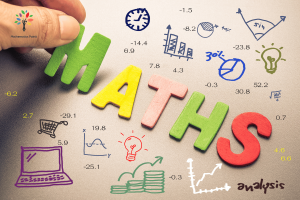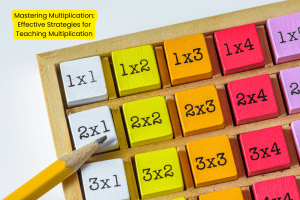Multiplication is a fundamental mathematical skill that forms the basis for several advanced math concepts and real world applications. Learning multiplication effectively is really important for our academic success and of course for every day problem solving. In this guide you can learn everything about the strategies for teaching multiplication including basic understanding and applying interactive activities.
Understanding Multiplication Basics
Multiplication is a mathematical operation which combines groups of equal size to find the total number of items. So you can say that it’s just a repeated addition. You can use multiplication in different real-world scenarios like calculating the total cost of multiple items determining the areas and volumes and understanding patterns and relationship and data. It is also foundational for several advanced topics like division fractions algebra and geometry. Mastering multiplication helps to develop critical thinking and problem solving skills which are important for success in mathematics and even beyond full
Building a Foundation in Multiplication
Times tables are very important for learning multiplication. They provide you a structured way to memorize multiplication facts making it really easy to recall answers quickly and accurately. Memorising tables allows you to solve multiplications quickly and with better confidence also reduces cognitive load and frees up a lot of mental resources for tagging more complex mathematical concepts.
Teaching Multiplication Concepts
Introducing multiplication as repeated addition can help you understand the basic principles. Visual aids like arrays and the concept of multiplication more concretely. An array of set objects is arranged in rows and columns and it visually presents a multiplication process.
Visual Aids and Manipulatives
Visual tools like multiplication charts grids and arrays can help you make abstract concepts even more tangible. They provide you a visual reference that you can use to understand and memorize multiplication facts for manipulatives including counters and beads allows you to physically manipulate objects to represent multiplication problems. The hands on approach can improve your understanding and retention
Strategies for Learning Multiplication Facts
To easily learn multiplication you can Group A similar multiplication factor recognize patterns as it can simplify the learning process. Patterns like even an odd result symmetrical properties and the relationship between multiplication and addition can help you understand and even remember multiplication facts easily.
Interactive Activities and Games
Incorporating games in your multiplication practice can make learning enjoyable and really effective. Games including multiplication bingo flash cards and board games can help you reinforce multiplication facts in fun and engaging way. There are several online resources and apps available that provide you multiplication activities. They offer you games and quizzes that cater to different learning styles and levels.
Real-World Applications
You need to know that using multiplication and real world concepts can help you understand the practical application scenarios like cooking shopping and measuring demonstrate the usefulness of multiplication in everyday life story problems or even word problems provide you a narrative or a context for multiplication helping you apply your skills in a meaningful way. These problems can be tailored to your interest in experiences making learning more manageable and engaging for you.
Differentiated Instruction
Different students have different learning styles so adapting instruction to meet the needs can improve understanding and retention for example if you’re a visual learner then you can benefit from diagrams and charts and if you are an auditory learner you can learn from songs and verbal explanations. Differentiated instruction includes offering additional support to you if you struggle with multiplication while providing you advanced challenges to those who excel. Customizing the lessons to individual need ensures that all of you can progress at your own pace.
Assessment and Feedback
Formative assessments like quizzes flash cards and oral questioning can help you understand your multiplication concepts better. Regular assessments allow for timely identification of areas that need reinforcement instructive feedback helps you understand your mistakes and learn from them. Positive reinforcement specific praise and clear guidance on how to improve your confidence and motivation.
Engaging Parents and Guardians
Encouraging multiplication practice at home reinforces classroom learning. Your parents must have resources and activities like multiplication charts and flash cards as it can support your learning outside of school. Teachers can also offer workshops newsletters and online resources to help the parents support their children’s multiplication practice. Clear communication and collaboration between you and your parents improve your learning experiences.
Overcoming Challenges
Math anxieties can hinder your progress and competence in multiplication. Strategies to address math anxiety include creating a positive and supportive learning environment offering encouragement and of course using relaxation techniques building confidence in multiplication includes celebrating small success providing reinforcement and using positive practice. Encouraging a growth mindset where mistakes are seen as learning opportunities can help you develop resilience and persistence.
So above all you need to know that effective multiplication teaching includes a comprehensive approach that includes understanding basic concepts building a strong foundation using visual aids. By implementing these strategies you can master multiplication with confidence and ease.






